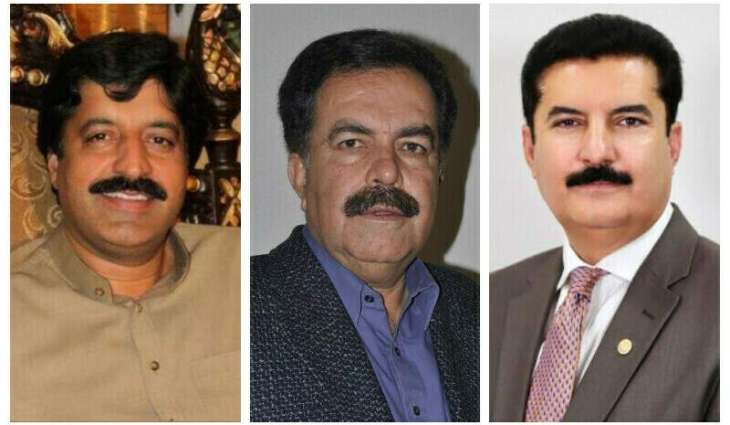Prime Minister Shehbaz Sharif and Bilawal Bhutto Zardari have chosen three names for governorship in Punjab, KPk and Balochistan.
ISLAMABAD: (UrduPoint/Pakistan Point News-May 4th, 2024) Prime Minister Shehbaz Sharif and Pakistan Peoples Party (PPP) Chairman Bilawal Bhutto Zardari have reportedly finalized nominations for the governorships of Punjab, Khyber Pakhtunkhwa (K-P), and Balochistan during a high-level meeting at the Prime Minister House. Although no official statement has been released regarding the deliberations, insider sources confirm that three nominees have been approved.
Among the nominees is Sardar Saleem Haider, a staunch supporter of the PPP hailing from Punjab’s Attock district. Haider boasts a notable political background, having previously served as a Federal minister and aide to the prime minister for overseas Pakistanis during the tenure of the Pakistan Muslim League-Nawaz (PML-N) government. He also held the position of Member of the National Assembly from Attock, representing the PPP ticket, and occupied the role of Foreign Minister under Prime Ministers Yousuf Raza Gilani and Raja Pervaiz Ashraf. Additionally, Haider currently serves as the president of the Bilawal-led party’s Rawalpindi division.
Faisal Karim Kundi, a prominent figure in Pakistani politics, is another nominee. Kundi served as the Deputy Speaker of the National Assembly from 2008 to 2013 and held the position of Adviser to the Prime Minister during the Pakistan Democratic Movement (PDM) government.
Completing the trio of nominees is Jaffar Khan Mandokhail, the president of the PML-N’s Balochistan chapter. Mandokhail has confidently asserted that his nomination has been finalized, expressing his commitment to bridging the gap between Balochistan and the federal government to facilitate progress and prosperity.
In a related development, it has been confirmed that the Muttahida Qaumi Movement-Pakistan (MQM-P) will retain the governorship of Sindh, with Kamran Tessori continuing in his current role. This decision underscores a pre-existing power-sharing arrangement between the PML-N and PPP, wherein each party secures key positions based on a mutually agreed formula.
Furthermore, these appointments reflect the reciprocity of support between the PML-N and PPP, particularly in pivotal governmental positions. Despite ongoing speculation, the PPP remains steadfast in its decision not to participate in the federal cabinet post-budget, reaffirming its stance against such involvement.




